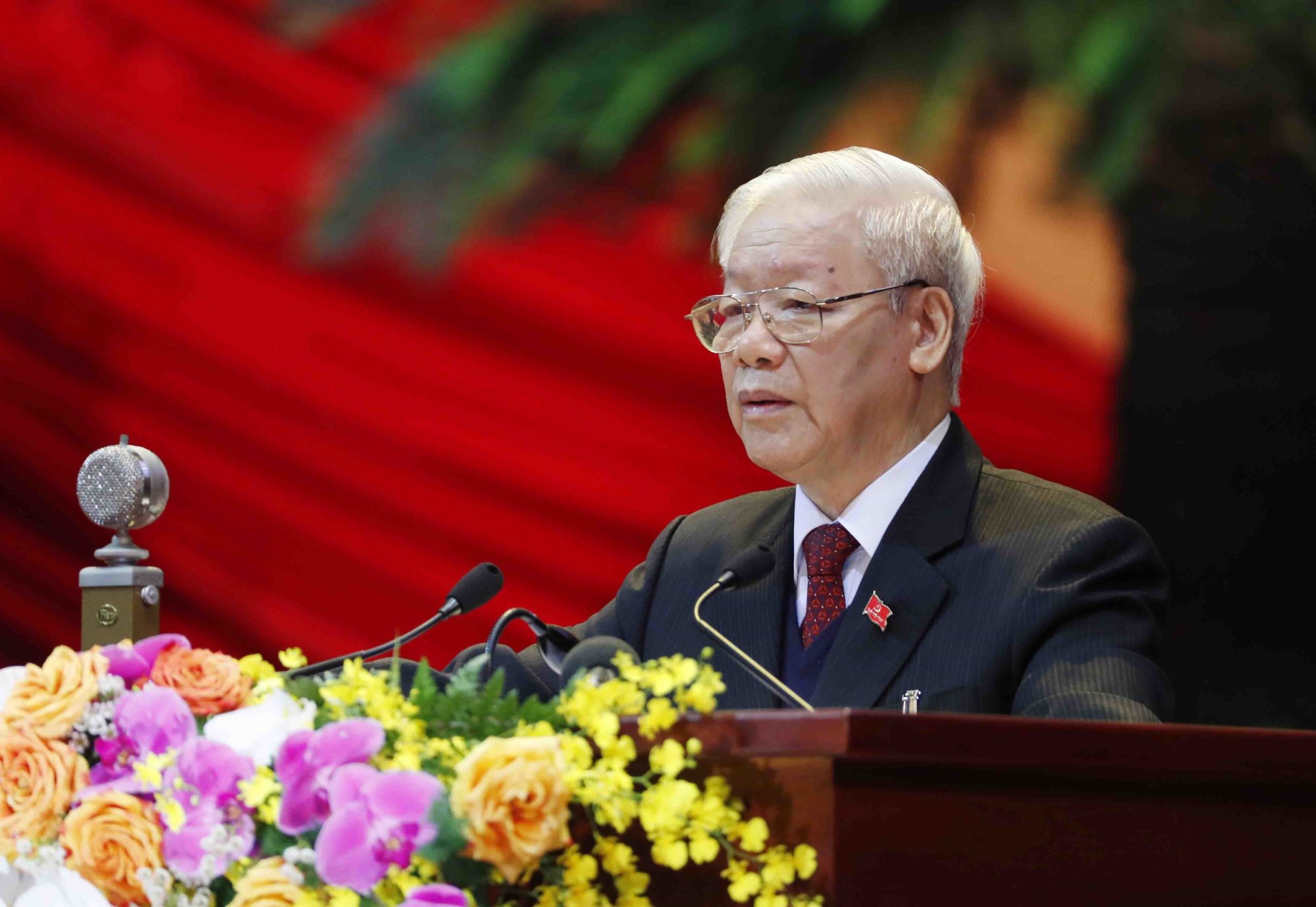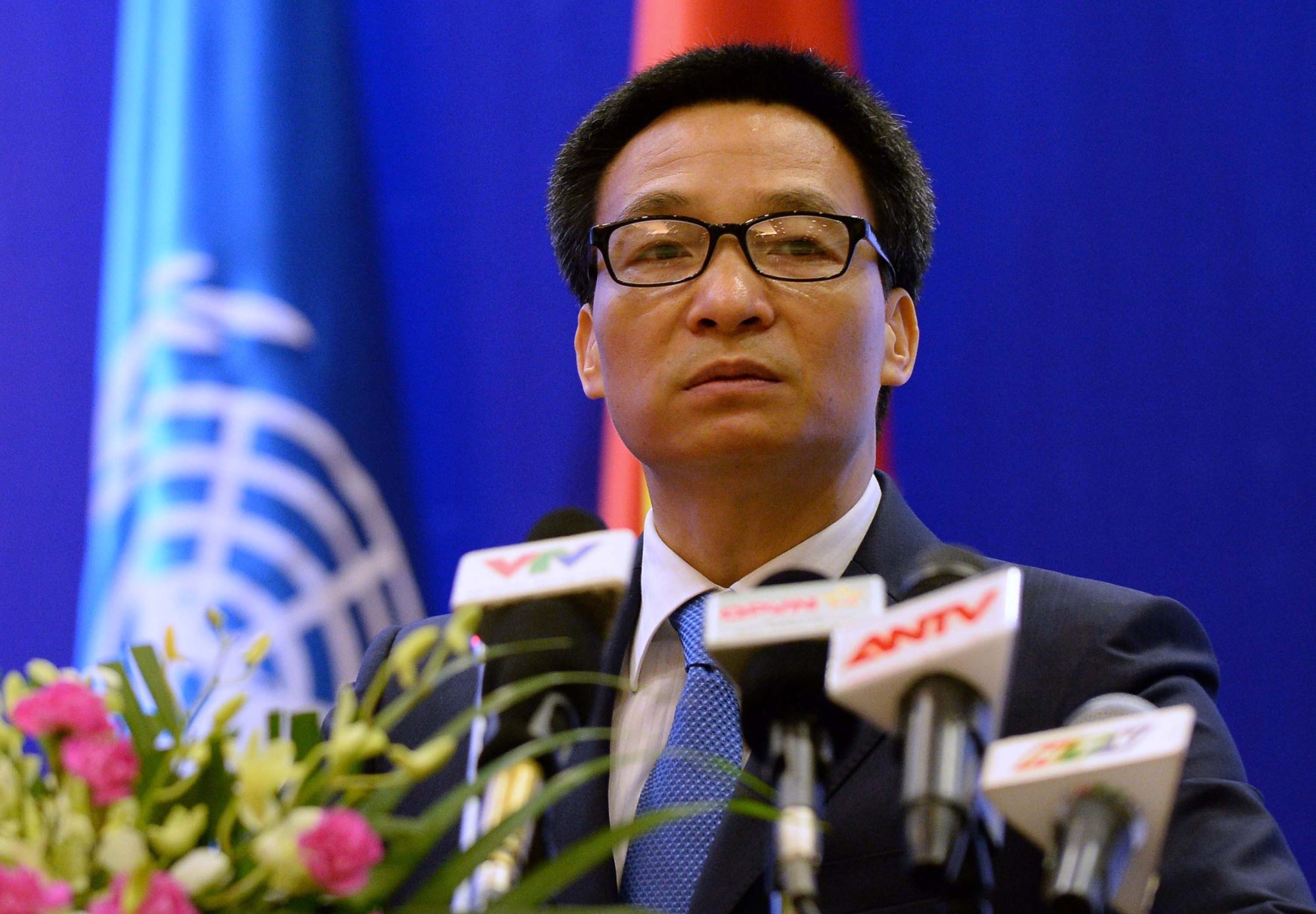
Vietnam’s President Nguyen Xuan Phuc resigns as scandal engulfs top leaders
- Phuc is alleged to have been responsible for ‘violations, wrongdoing’ by junior officials
- His resignation comes ahead of a national assembly meeting that could signal a possible government reshuffle
Phuc, 68, a former prime minister who held the largely ceremonial position for less than two years, is alleged to have been responsible for “violations, wrongdoing” by junior officials, Vietnam News Agency said in a statement, without providing further details.
“Fully being aware of his responsibilities before the party and people, he submitted an application to resign from his assigned positions, quit his job and retire,” the Vietnam News Agency reported, citing the party’s powerful Central Committee.
It was not immediately clear who would replace Phuc.
China visit for Vietnam party chief comes amid ‘stronger than ever’ ties with US
His resignation came ahead of an extraordinary meeting by the National Assembly on Wednesday seemingly called to sign off on his exit from office and rubber stamp a reshuffle by the Central Committee, which may see the promotion of several security officials.
There had been widespread speculation over an imminent resignation by Phuc following the dismissals in early January of two deputy prime ministers, who were working under him when he led the government.
Analysts were shocked by the removal of Pham Binh Minh, a career diplomat and a member of the Communist Party of Vietnam (CPV) Politburo in charge of external affairs, and Vu Duc Dam another deputy prime minister in charge of culture, education, and science during an extraordinary session of the legislature on January 5.
Both were removed after a bribery probe was opened into deals done as part of Vietnam’s handling of the coronavirus pandemic, including repatriation flights to the country and distribution of Covid-19 tests.
Carlyle Thayer, emeritus professor at the University of New South Wales in Canberra, said Phuc’s resignation had in recent days become a “foregone conclusion”, noting that there were three front runners to replace him.

General Secretary Nguyen Phu Trong might assume the presidency and hold two positions, he said, as was the case in 2018 when former president Tran Dai Quang died in office.
“Others suggest the current Minister of National Defence Phan Van Giang will be promoted. To Lam, the current minister of public security, is also touted as a possible candidate,” Thayer added.
While the reshuffle will forward a new president from inside the tightly controlled political establishment on the recommendation of the Central Committee, Phuc’s resignation may rattle a public who are rarely given glimpses into top-level political machinations.
“The meeting and the departure of the president would be a shock to the public who would be wondering what was going on in Vietnamese politics at the top level,” said Hai Hong Nguyen, an honorary research fellow at the University of Queensland’s Centre for Policy Futures.
What does army’s growing influence mean for Vietnam?
He added that the immediate implication of the shake-up was that “anyone can be questioned and requested to step down” while the long-term implication was that “it will create and deepen a ‘hidden’ conflict among officials at the top level”.
“This would be more dangerous for the regime,” Hai Hong Nguyen said, adding that no one knew or could tell the reason for the shake-up except for the members of the Central Committee and the Politburo.
“But like the recent dismissal of the two deputy prime ministers, there was a link to political responsibility of the leadership when the junior staff had been disciplined,” Hai Hong Nguyen said, noting that while corruption was mentioned as one of the reasons, that “needs to be verified”.
The meeting of the National Assembly was held amid an anti-corruption crackdown that has already led to the arrest of a health minister and investigations into hundreds of senior officials.

Minh exited after a “personal request” to withdraw his membership from the Central Committee and the Politburo, state media said.
Even though the meeting did not offer a reason for Minh’s action, it was understood to be linked to the bribery case involving repatriation flights for Vietnamese stranded overseas.
Supervised by Minh, the flights were organised by the country’s foreign ministry at the height of the Covid-19 pandemic. Thirty-seven people – many of them senior diplomats and police – have been arrested amid an investigation into the scandal.
Dam was in charge of the country’s handling of the Covid-19 pandemic. At least 100 officials and businesspeople, including Dam’s assistant, have been arrested in connection with a scandal involving the distribution of Covid-19 testing kits.
Thayer noted that the two dismissed deputy prime ministers served when Phuc was prime minister.
“The ostensible reason is that during his term as prime minister from 2016 to April 2021, he failed in his oversight duties as the most senior member of the party committee supervising government affairs,” Thayer said.
Thayer said the current Prime Minister Pham Minh Chinh had the duty to nominate a replacement subject to approval by the National Assembly.

First to be ousted while in office
Vietnam has no paramount ruler and is officially led by four “pillars”: the powerful party’s secretary, the president, the prime minister and the chair of the parliament.
In an article published on Tuesday by Fulcrum, Le Hong Hiep, senior fellow and coordinator of the Vietnam Studies Programme at the Singapore-based ISEAS-Yusof Ishak Institute, said Phuc’s departure would make him the “the first Vietnamese president to be ousted while still in office”.
Rumours whipping across Vietnamese social media have suggested that Phuc’s spouse was allegedly involved in a graft scandal making money from the pandemic.
During the pandemic, Viet A Technology Corporation was said to have colluded with government officials in selling RT-PCR tests, and later imported rapid tests falsely marketed as locally made, at a heavy mark-up to provincial health departments and hospitals.

General Secretary Nguyen Phu Trong has ruled out any “no-go zones” in his crusade against corruption.
“Apart from the Viet A scandal, Trong is overseeing the investigation of several other high-profile graft cases,” Le wrote, warning that “more political bigwigs may be implicated” in the repatriation scandal.
Le added there was little evidence that the leadership reshuffles linked to Vietnam’s anti-corruption drive might lead to political instability, threatening the regime or constraining the country’s economic performance.
“General Secretary Trong remains firmly in charge, and there is no indication that the personnel changes are causing disunity within the party or engendering instability in the political system,” he said.
“On the contrary, the purge of corrupt leaders may pave the way for cleaner and more capable leaders to rise, helping the party fight corruption better and improve its governance.”
Vietnam’s health minister arrested over price gouging of Covid-19 tests
Zachary Abuza, a professor at the National War College in Washington DC, wrote on Twitter that with Phuc’s departure, two of the top four positions were held by the Ministry of Public Security, describing the potential promotion of more members as “institutional capture” by the security apparatus.
“For a country of which the most attractive comparative advantage is political stability … too much reshuffling within a month is not good news,” said Linh Nguyen, Southeast Asia lead analyst at Control Risks.
“These crackdowns imply that the communist party of Vietnam’s anti-corruption campaign will emerge to an even more serious phase this year.
“Fighting corruption is often cheered by foreign investors, and with good reason: it is supposed to improve the rule of law and create a level playing field. But the politicised nature of Vietnam’s anti-corruption campaign should give investors pause,” Linh added.
Nguyen Khac Giang, research fellow at the Vietnam Centre for Economic and Strategic Studies, said the development “marks the beginning of a new period in Vietnamese politics where political infighting will intensify leading up to the next Party Congress in 2026”, adding that Phuc’s political career was “officially over”.

